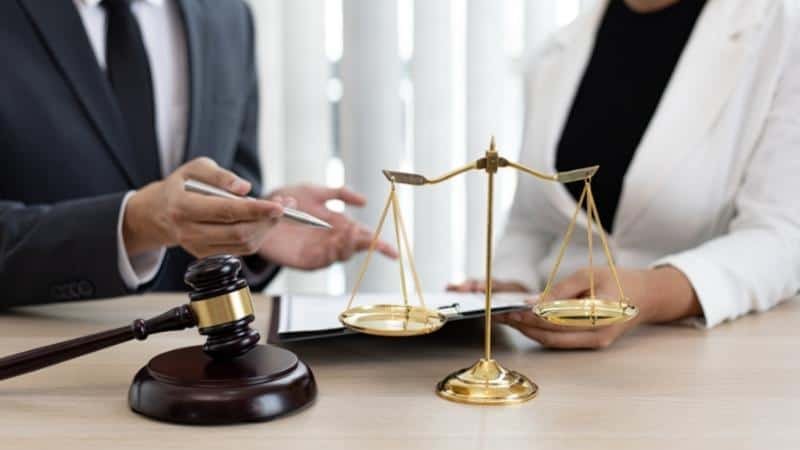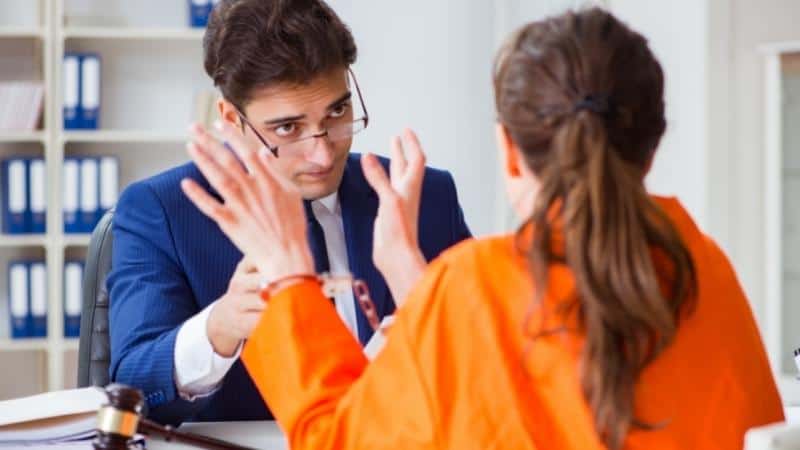The process of permitting somebody who has been found guilty of a crime and ordered to be put in jail to be discharged before their sentence expires is known as parole. Defendants who exhibit a sincere interest in changing or developing themselves while imprisoned are commonly granted parole also termed as “early release.” It is also termed as a sort of punishment for somebody who behaves well while imprisoned.
In general, it is the releasing of an offender on the assurance of positive behaviors, either momentarily for a particular reason or totally before the end of a sentence; such a commitment is regarded as a term of honor stated in the parole decision. The word ‘Parole’ originates from the French phrase “Je donne ma parole,” which means “I give my word.” Inmates used this word to secure their release by making pledges to their captors.
In simplistic terms, parole is the premature provisional momentary discharge of a detainee on the circumstance of being required to abide by the conditions and observing specific limitations in order to obtain the prerogative of going back to societal structure and socializing with relatives and friends while keeping community corrections theory in mind and trying to prepare to come back to the societal life.
It is merely a temporary stay of execution, with the remainder of the sentence remaining in place. If paroled inmates break the terms of their release, they might be sent back to jail.
A parole lawyer represents somebody who is undergoing a parole hearing and is procuring parole from the hearing board. Parole lawyers might even represent clients as defense lawyers in court, and they might continue with them after the conviction to help them with parole hearings.
Other parole lawyers can be hired by someone who is approaching a parole hearing after a particular period of time in jail and wants a more comprehensive description.
A parole lawyer can indeed help somebody who has been given parole figure out what they are allowed to do and what they are not allowed to do according to the rules of their discharge.

Without taking into account the reasons for parole, a parole lawyer mainly emphasizes the procedures, regulations, and functions that govern parole in a certain jurisdiction within the United States (US). Every state has its unique method of parole, and governmental agencies have been formed to supervise parole hearings and decisions.
Even though the US Department of Justice outlines standards for impartiality in parole hearings, the bulk of the work is undertaken at the level of the state.
A skilled parole lawyer will develop a solid case for early release depending on the information, their understanding of the law, and their understanding of how the parole system functions. They are professionals. They can also bring a relative to the panel, such as a father sibling, or mother, who can explain that the relatives will assist the offender in becoming a valuable part of society.
A parole lawyer concentrates his or her expertise on the rules concerning parole in the jurisdiction in which he or she works. He or she might well be acquainted with officials of the board of parol and have a deeper understanding of dealing with them and help the client undergoing a parole hearing succeed.
While obtaining parole without the guidance of a parole lawyer is feasible, employing one can make the entire procedure flow better easily and boost the possibilities of earning release.
Parole, like probation, is a supervised classifier release rather than jail, and it generally occurs with a series of requirements to be met in order for the parolee to avert that is sent back to jail. These include avoiding specific persons and behaviors and also complying to travel limitations.
A parole lawyer can typically help a parolee better grasp the requirements and prevent re-entering jail before the conclusion of his or her parole period.
A parole board usually consists of six part-time officials and a full-time chairperson. The parole board comprises specialists from a variety of fields, like law enforcement, social welfare, medical, and legislation. The board will analyze the file contents, speak with the sufferers of the criminal acts, and then hold a hearing with the convict at a parole hearing.
The convict is permitted to bring any items that might be of assistance to him, along with his or her lawyer. After considering all of the evidence, the Parole Board will argue and approve whether or not to release an offender.

When evaluating whether or not to grant parole, the parole board examines a variety of issues. The board will evaluate all considerations, such as the seriousness of the activity, the detainee’s prison attitude, and the activities in which he or she has participated.
The detainee’s suggested discharge arrangements will also be considered by the parole board. Other factors to examine are listed on the parole board’s webpage, including:
- The gravity of the offense
- The duration of the sentence
- Any prior criminal records
- The behavior of offenders in ACI programs
- The detainee’s suggested discharge plans have been finalized.
- A change in the detainee’s attitudes
- A change in the offender’s behavioral pattern
- Community security
- Issues of friends and family
- Concerns of sufferers and others
Typically, parole boards have released prisoners when they are convinced that they have changed their ways and are no more a danger to the community. When this technique was prevalent, imprisonment was considered a means of reforming offenders and transforming them into law-abiding civilians.
However, beginning in the mid-1960s, the goal of the penalty shifted from rehabilitation to retribution (an eye for an eye). Several states went from indefinite to determinative punishments (considered to be “soft on crime”), and discretion parole has become less visible as a result. With the constraints of jail overpopulation and costs, nevertheless, parole is still used, if only to alleviate the state of these costs.
If your relatives and close ones are fighting for your discharge, the parole board might take it into consideration. That isn’t to imply the board won’t acknowledge them, but there’s always the possibility of skepticism. Family and close ones, after all, will do everything to assist.
When a convict is granted parole, he ought to abide by all terms, as long as they are acceptable, directed at a rehabilitation center, and well-defined. Periodic meetings with or communication with his parole officer, abstaining from causing any trouble, shunning the company of violent criminals or gangs, as well as other requirements to maintain the parolee out of danger are just a few instances.
Travel limitations, mental treatment, a necessity to leave the state or face deportation, electronic home monitoring, and consent to a search without a warrant are among the other requirements.
If you or a member of the family finds themselves looking for a new parole lawyer, you must act immediately to find somebody who can defend you and give you sound advice. Even though you can delay until you receive confirmation of a parole hearing, that’s always a smart option to have a parole lawyer on hand for advice in the meantime.
Many law firms nearby PLLC can supply you with an experienced and skilled parole lawyer if you do not currently have one or if you are dissatisfied with your existing representative.

A formal representation (represented by a lawyer) is not obligatory for a parole hearing. Many offenders have close one or family members who try to assist them with documentation and perhaps even create presentations on their favor at hearings.
Nevertheless, it’s vital to realize that parole lawyers are criminal justice specialists who understand the law and, more crucially, the procedure. Employing a parole lawyer is the best method to increase your chances of being discharged early.
The Supreme Court of the United States has not declared that each and every parolee must always be retained by lawyers if he or she chooses it. Certain state constitutions and statutory law, on the other hand, demand representation. When no constitutional law or statute is applicable, the parole board should determine on assigned counsel on a case-by-case basis.
When a parolee asks for a lawyer and disputes the alleged infringement, or when the parolee concedes the infraction but tries to raise reasons in support of mitigating the offense, deeming revocation improper, representation should be assigned. It’s also important to assess if the parolee has the capability of properly advocating for himself.
Hiring a lawyer will almost certainly improve your chances of being discharged from jail. If you have a parole hearing starting soon, you should hire a lawyer who has expertise in representing inmates at parole hearings. Choosing a parole lawyer is among the most crucial decisions you will make. Your opportunity at liberty is already at stake.
It is critical that you are completely upfront to answer questions that might have long-term consequences when appearing before your Pardon and Parole Board of the state.
Related Article: What is a Parole Lawyer
